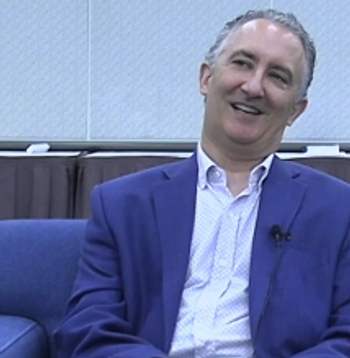
DSM-V: Mind Made Up?
I read with great interest and considerable apprehension Dr. Frances’ assessment of the DSM-V developmental process ("A Warning Sign on the Road to DSM-V," Psychiatric Times, July 2009).
I read with great interest and considerable apprehension
About two or three years ago, a request was sent out by the DSM-V Task Force for input from practitioners in the field to assist in the development of the new criteria for the diagnosis of personality disorders. Within two weeks of learning of that request, I submitted a lengthy, detailed, and carefully reasoned e-mail message to the Task Force regarding possible introduction of another dimension to the diagnostic criteria for personality disorders. My reasoning was simple: the diagnosis of a personality disorder remains controversial and ill-defined in many cases, and the threshold for diagnosing a genuine disorder (in contrast to "traits" or "features") can be very difficult to define. In an effort to address this dilemma, I proposed adding a dimension of "mechanisms of defense" to the phenomenological criteria already existing in DSM-IV. Inclusion of defense mechanisms with the existing criteria would in no way interfere with or contradict the present basis for diagnosis; it would simply provide additional information to facilitate a difficult diagnosis and to assure greater confidence in making that diagnosis. It would also be another way of looking at personality disorders. I certainly do not claim to have been the first to consider this - the idea has been proposed many times by others in the field, and is essentially a psychoanalytic concept. In addition to the descriptive features already delineated in the DSM-IV, each personality disorder is further characterized by a specific cluster of defenses such as splitting, overvaluation, devaluation, isolation of affect, projection, rationalization, denial, minimization, etc.
The details of my proposal are not germane to the present discussion, however; rather, I am deeply concerned with the process by which the Task Force is attempting to create a “Brave New World” in DSM-V, and the manner in which that group is proceeding.
The response of the Task Force to my proposal was patronizing, condescending, and insulting: the spokesperson thanked me for my interest, and informed me that they had already decided what criteria would be included in the DSM-V for the diagnosis of personality disorders and that no further input from the field would be considered. There was no explanation. The decision not to solicit input from practicing psychiatrists was simply a fait-accomplis. There was no discussion of the potential value (or lack thereof) of my proposal. There was no elucidation of the reasons why my proposal had been rejected, seemingly without any consideration. The group simply dismissed my suggestion as though it was trivial and irrelevant. I was extremely offended that a group that ought to command respect would be so hypocritical as to ask my opinion about something, only to say in response that they really didn’t give a damn what I thought. Perhaps I was wrong to think that I was a “peer” - clearly they consider individuals such as I to be beneath them. (I sometimes wonder what the response would have been had I retained my credentials as a member of the faculty of Harvard Medical School.)
The potential value of my proposal is not the point; it is rather that I wish to call attention to the imperiousness, arrogance, and secrecy that seems to pervade the activities of a Task Force that has been entrusted with the development of a highly sensitive, controversial, and important text. I had not really thought to share my personal experience until I read Dr. Frances’ article in the current Psychiatric Times and realized that my discouraging experience with this group was not unique, and that both Dr. Frances and Dr. Spitzer share a similar concern. I am deeply troubled about the sort of product likely to be created by a group that excludes input from the very people who ultimately will be prevailed upon to use that product - those people whose extensive knowledge and experience might greatly have enriched the usefulness and validity of the product this group is attempting to develop.
All too often in history, we have seen the consequences of leaders whose attitude is, “my mind is made up - don’t confuse me with the facts.”
Newsletter
Receive trusted psychiatric news, expert analysis, and clinical insights — subscribe today to support your practice and your patients.







